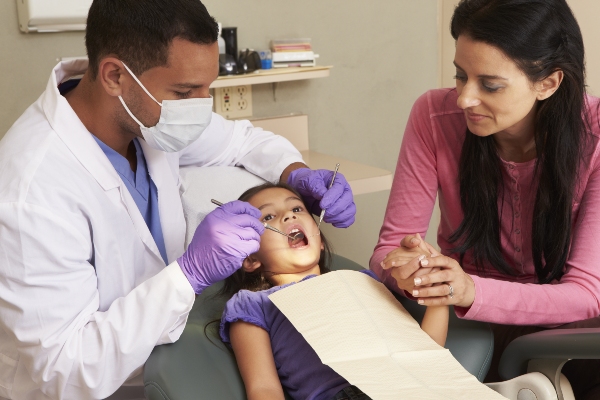 Injuries to the teeth are relatively common in children, occurring after sports, fights, falls, or vehicle accidents. A pediatric dentistry visit is the most appropriate option for evaluating an injury that has impacted a child's mouth. Any injury can be frightening, so children should be prepared for the treatment process.
Injuries to the teeth are relatively common in children, occurring after sports, fights, falls, or vehicle accidents. A pediatric dentistry visit is the most appropriate option for evaluating an injury that has impacted a child's mouth. Any injury can be frightening, so children should be prepared for the treatment process.
How to prepare a child for dental injury treatment
The most important thing you can do to prepare your child for pediatric dentistry treatment for an injury is to explain the treatment process. Treatment procedures will vary depending on the type of injury.
Dislocated primary tooth
Loosened front teeth are a common dental injury. Treatment for this type of emergency issue focuses on the prevention of additional damage to the teeth. A loose tooth will usually heal on its own in time and can be left in place if it is not interfering with the bite. However, if the tooth is a primary tooth and is extremely loose, it should be removed to avoid falling out and causing choking or other injuries.
Broken primary tooth
A broken primary tooth could involve damage to the blood vessels or nerves, requiring prompt pediatric dentistry treatment. The tooth's rough edges should be smoothed and the broken part may be repaired with resin in the same tooth color. The dentist may also opt to remove the tooth if the damage is too severe.
Dislocated permanent tooth
If a permanent tooth is lost, it is a true dental emergency requiring immediate treatment. Prompt treatment is critical when it comes to saving the permanent tooth. Most teeth that are placed back in the socket in the first five minutes after the injury can be saved. Anyone on the scene of the accident can attempt to place the tooth back in its socket after rinsing with tap water or saline. If replacing the tooth is not possible, store the tooth in cold milk or a container of saliva. The sooner the tooth is reimplanted, the more likely it is that it can be saved.
Loose permanent tooth
If a loose permanent tooth impacts the child's bite, prompt pediatric dentistry treatment is important. Usually, the tooth can be repositioned, but the child should be prepared for the possible use of stitches and the likelihood of potentially uncomfortable follow-up treatments (including root canals) to ensure the tooth's stability over time.
Broken permanent teeth
A broken tooth necessitates a trip to the dentist as soon as possible. If the broken tooth displays sensitivity to hot or cold, it should be treated as an urgent case. Tooth fragments should be preserved for attempted reattachment. If the fragments are not available or are insufficient for repair, a composite resin may be used to fix the tooth.
Conclusion
No one anticipates an injury to a child's tooth or mouth, but such injuries are very common. After you tend to the child's immediate physical and emotional well-being, prepare them for the upcoming pediatric dentistry visit by explaining what their procedure will entail. Knowing what to expect will help to ease anxiety and make the injury treatment proceed more smoothly.
Request an appointment or call Manvel Pediatric Dentistry at 832-645-2848 for an appointment in our Manvel office.
Related Posts
Dental injuries can be common during childhood, but prompt treatment from a pediatric dentistry professional can help restore your child's smile. It is important to have chipped, cracked, broken, or knocked-out teeth evaluated by a dentist, even if the patient is a child and only their baby teeth are affected.There are many types of dental…
One of the goals of pediatric dentistry is to make sure kids understand the value of oral health. This is possible with the help of parents or guardians. First-time parents can consult the pediatric dentist about what to do. If you want to know how to teach your kids proper oral hygiene habits, here are…
Dental injuries are relatively common in younger children. Many parents wonder if pediatric dentistry treatment is necessary, especially when it comes to baby teeth. However, many of these types of injuries require prompt evaluation from a dentist, even if the damage seems minor and there is no pain. Failing to have your child evaluated quickly…

